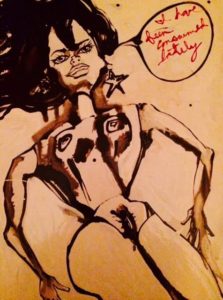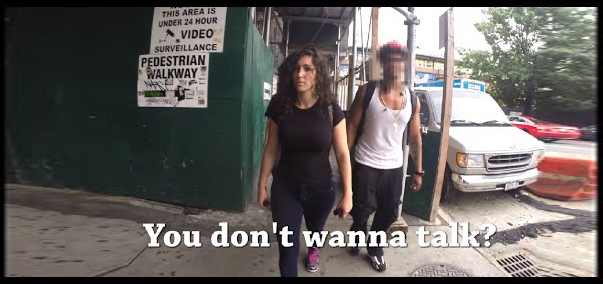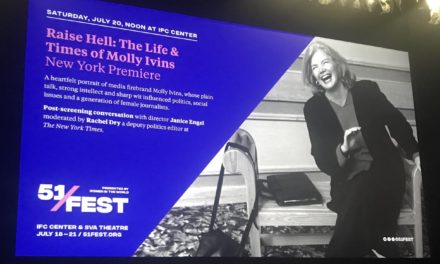
Recently I was standing in line at the post office to buy a sheet of them when I saw a poster advertising Wonder Woman stamps. I knew I had to make an exception, just this once, and grace my mail instead with a message of female power.
Clearly we’re in a moment.
And you know who is helping me most of all in this moment? Regena Thomashauer, also known as Mama Gena. Maybe she’s the Wonder Woman of the Trump era.
Had you come to me six months ago and said, “Nancy, you’re going to feel like your life is transformed by a book in 2017 and it’s going to be called Pussy: A Reclamation and it’s going to be written by the head of Mama Gena’s School of Womanly Arts,” I would have looked at you with furrowed brow. Huh?
Nothing against Thomashauer and her highly successful business, but I’ve always hated the word pussy. I’ve long preferred the more clinical term vagina. Maybe it’s generational. I don’t know. But back in September I was interviewing a vibrant 20-something musician who extolled the virtues of Mama Gena and so openly talked about her pussy as the center of her femininity, creativity, and power that it intrigued me. She mentioned that the new book was coming out soon.
Keep in mind this is all before the video of Donald Trump talking about grabbing pussy surfaced. His words about women have been triggers for so many of us who have felt at the very least like a thumb is bearing down on our freedom and at the most like sexual assault is going to be taken lightly in the new world order. We’ve gone from feeling “heard” to “silenced” at the very top of our government in the span of one freaky election. A confident feminist man leaves the highest office in the land to make way for an insecure misogynist.
So, yes, I spent New Year’s Day turning the pages of Pussy: A Reclamation like my life depended on it. Isn’t that, after all, the very essence of what we’re marching for on the day after the inauguration?
In the introduction to the book, Thomashauer poses questions about why women seem to have a limited ability to access their power. Her answers center around the fact that “our lights are off” because we’ve been socialized to do that.
“We turn off our life force, turn off our feelings, turn off our sensuality, and as a consequence, we turn off our power,” she writes.
The urgency escalates in the writing that cascades down the page:
“When we live in a world that cannot even comprehend its own inherent bigotry against women — and thus cannot step forward to honor or support the women and girls who have been devastated by it — what is the recourse? How do we stand up to an invisible assault that does not want to be made visible? How does a woman weather — let alone triumph over — such a global denial of her experience?
“How does she locate a pathway to mend, strengthen, and remake herself in a world that does not recognize she is broken?
“How does she turn on when she has been systematically denied, passed over, and subjugated?
“Where is the opportunity in this story line for the victim to become the heroine?
“How do we, as women, reconsecrate our holiness after we have been defiled, turned off, and ignored all our lives?”
Again, I remind you, this was written before the lead-up to the 2016 presidential election. Prescient, yes? It’s worth noting that on the flip side of us turning off our lights, our country just elected a man who turns up the volume on all aspects of who he is; while we are morphing into what society wants us to be, he shies away from no aspect of himself.
Mama Gena’s solution is clear: reconnecting a woman to her pussy.
“Just as pussy is the source of all human life, pussy is the source of each woman’s connection to her own life force, her voice, and her sense of internal power,” she writes. “When a woman turns on her pussy, she is actually turning on her life force and connecting to her divinity.”
This may sound like an intro to a book about orgasms, but it is so much more. Thomashauer is a proponent of pleasure on all fronts, but this book gives us a line into how she came to see it as her life’s work. I was engaged in and inspired by her stories of struggle and determination. I related to some of them, too.
“Living one’s desire is an adventure like no other,” she writes. “There are no safety nets, no seat belts. In fact, when you plight your troth to your desires, you’re kind of asking for it. You’re grabbing the hand of the Great Pussy in the Sky and asking to be broken open. Asking to be remade. Asking for the current version of you to be shattered and reassembled into the woman you were born to become.”
I think this moment in our country is calling us to this. I’ve spoken to women who are feeling broken open. The more awake among us feel we’ll turn a corner and see this as an opportunity and even a call to something greater. For now we’re still slogging along as if underwater, lost and dazed.
“It takes no courage at all to feel pathetic; it’s so easy to do,” Thomashauer writes. “The thing that takes courage is to choose radiance when you’re not feeling it.”
This is our true call. Let Thomashauer crystallize it for us:
“I’d heard of people who had valiantly endured troubles, which was, itself, a slight improvement over complaining about their trials and tribulations. (The latter being the way of my own heritage.) But to profit from hardship? To actually create living poetry from an impossible set of difficulties? To greet the worst-case scenario as if it were a gift? Now that was interesting.”
Lots of us believe we’re in a worst-case scenario, right? Imagine being able to see it as a gift? What would that look like? A harnessing of power that rises upward and doesn’t stay mired in desperation and anger. We have our work cut out for us.
“The world is hungry for new ideas, and the voice of the radiant feminine is the voice of transformation in our lifetime,” Thomashauer writes. “Women are the greatest untapped natural resource on this planet.”
It seemed significant that the post office was out of Wonder Woman stamps. I had to settle for continuing to spread love.





